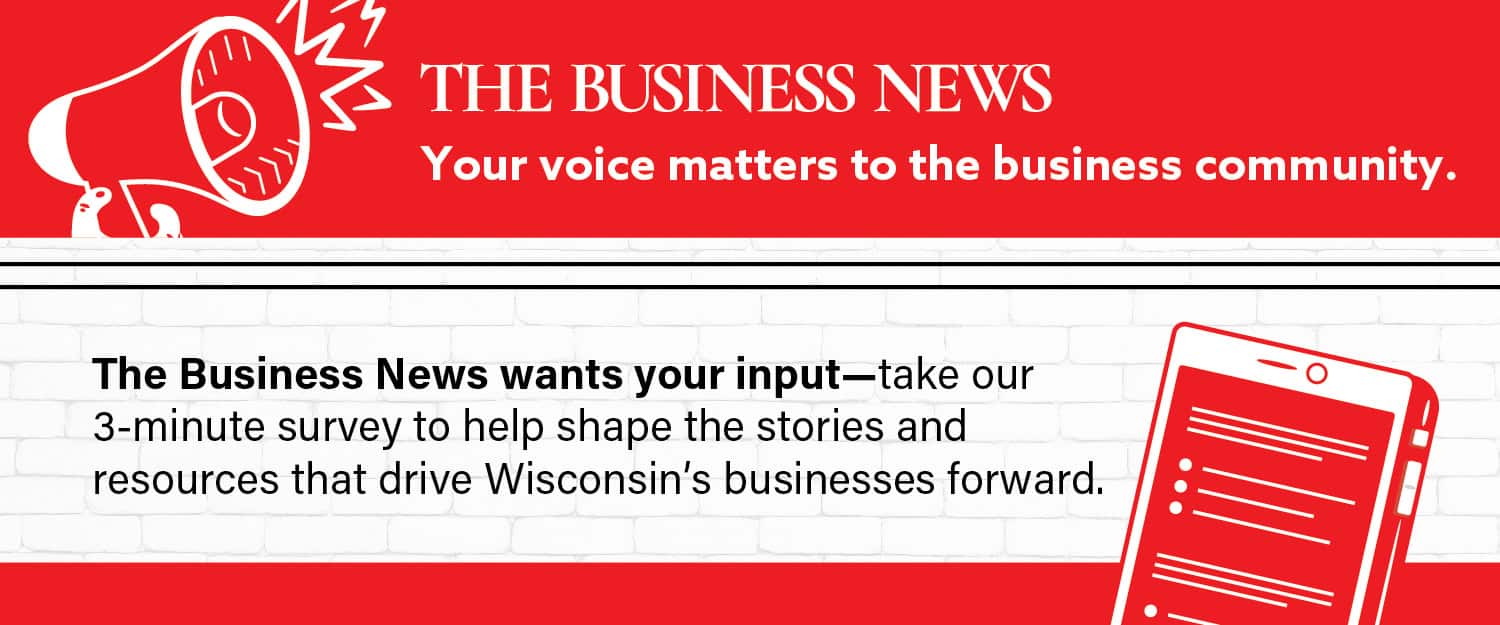
July 22, 2024
RICE LAKE – Think Rice Lake isn’t up to speed on the latest business technology?
The data says otherwise.
Josh Royes founded Royes Analytics in 2023, and he said he utilizes innovative methods of data collection to bolster business operations and employee satisfaction – locally and nationally.
“At a broad level, (analytics) is the process where we’re using information to create value,” he said. “How do we make changes moving forward using that information?”
Josh said with Royes Analytics, he uses cutting-edge technology, as well as develops his own analytics and research tools to collect data and provide valuable insights for companies and organizations.
“It should be done in a continuous improvement or iterative manner where we try to seek out information, and we try to organize it in a way where we can see a narrative or a story that helps us make a decision,” he said. “The thing we thought we should do – is that creating more value? Should we continue the course, or do we need to start differently?”
Josh said what differentiates his brand of consultation is his background in industrial-organizational psychology – which was also the focus of his doctorate and master’s degrees.
Industrial-organizational psychology, he said, is comparable to the science of human relations.
“It’s the psychology of work, basically,” he said. “We study topics from motivation to leadership, to employee selection, to promotion, to team dynamics – everything related to work and people organized into groups. We spend so much of our lives, and time, working and thinking about work. I liked the idea of trying to quantify work and work experiences. How can we make work fit into our lives better?”
Josh said both national and local clients of his data-based consulting work have benefited from his creative methodology.
But as he seeks to grow Royes Analytics, he said it can be challenging to prove how data can unlock value for companies unfamiliar with the possibilities.
“That is a lot harder to pitch from the beginning because people’s eyes glaze over when they hear ‘data’ – so you have to have some finesse,” he said. “I hope it leads to more people understanding how I can help their business.”
What data can do
Josh said he founded Royes Analytics following the June 2023 dissolution of his position with the Wisconsin Department of Public Instruction as a statistician identifying opportunities to improve student outcomes.
“That’s when I said I’m going to start consulting full-time – because I had at that point been doing about five to six projects a year (on the side),” he said.
The projects he focuses on now, Josh said, range from independent work for clients – “usually manufacturing, construction or retail” – to servicing larger, national consulting firms – “doing analyses for them or building them products or models that do analyses for them.”
“What I always hear is, ‘who is your ideal client? What’s your market?’” he said. “It’s hard for me (to decide) because I think I can add value anywhere.”
Josh said his concern isn’t finding his exact niche at this point, so much as providing accurate and insightful services across the board.
With his advanced analytics services, Josh said Royes Analytics helps companies who already have data to analyze, organize, clearly visualize and make recommendations based on it.
He said his advanced services can also aid in creating reports, automating tedious work and predicting outcomes, from employee performance to election results.
Royes Analytics’ custom research services, he said, can further help companies’ broader anticipation abilities.

“The client has a question – ‘this is going on in my organization, and I don’t know why,’” he said. “I’ll put together a quasi-experiment to figure out why it’s happening. If an organization is seeing lots of turnover, (I’m) trying to figure out what’s predicting turnover – or if people are leaving early, to predict how long they’re going to stay.”
Josh said if a company wants to roll out trainings or HR initiatives, “(I’m) trying to figure out which is going to work best.”
“Maybe (that means) doing A/B testing, having different types of training or HR initiatives we can roll out within a subsample of employees – figuring out which one is working better and moving forward with that, making adjustments as needed,” he said.
Another of his services, Josh said, regard employee selection – enabling businesses to more accurately hire for open positions.
He said this process starts with a job analysis “where we map characteristics of the job with characteristics of the person.”
“I can consult on the process for selection, or I can talk about how they can clean up the process,” he said. “Sometimes companies have rounds and rounds of interviews and that process can be cleaned up, whether we incorporate a test instead of an interview – or maybe these interviews don’t have to be separate interviews – things like that.”
Josh said with this service, Royes Analytics can help companies overcome adverse impact – the legal concept measuring disproportionate hiring regarding protected groups.
Personality traits historically considered qualitative or subjective can be quantified thanks to modern analytics tools, Josh said – allowing for the measurement of an individual’s level of extroversion, for example, to predict success in a sales or customer-facing position.
“Assessments, intelligence tests or personality tests – I develop those,” he said. “Or if (companies) have existing ones, I can refine them.”
A personal touch
Though he does utilize machine learning technology in his data consultation, Josh said the human element is invaluable when abstract and theoretical calculations start to influence real-world consequences.
He said an example of this – regarding employee selection – is when software designed to review job applications dispassionately filters out applicants whose resumes have happened to omit designated keywords.
Convenient as it may be, Josh said there are unfortunate deficiencies among the analytics features included with the digital HR management platforms to which many companies subscribe.
Josh said digital HR management platforms, which often include their own analytics features, come with a trade-off for convenience.
“They’re not trained in measuring these complex psychological things – they’re trained in getting data moved around,” he said. “That’s always a battle – how can you beat out the things that are already in front of your clients?”
Further, companies enticed to utilize artificial intelligence models may be able to cut costs, Josh said, but at the risk of cutting context.
“The AI model – it is good at putting together a model to predict something, but it’s going to be less good at using that result to change something,” he said. “Did it use that data correctly, or does it think it used that data correctly?”
Josh said changes based on this model’s recommendation could impact other things that maybe aren’t in the data set, therefore the model wouldn’t know about.
“As a consultant, you have to know and keep in mind the context,” he said. “And in that way – at least for a long time – you’ll be able to beat the AI model.”
With his ability to creatively customize his processes and tools – including incorporating more qualitative factors – Josh said he personalizes his research to suit companies’ needs while helping them maintain employees’ invaluable trust.
“When we’re collecting employee survey data, you have to be cognizant the data you’re getting from your employees is their experience – and more importantly, their experience they’re willing to share with you,” he said. “If the employees think their data is never seen by another human and gets dumped into this model that spits out a recommendation, they would be less apt to provide data or actual things they feel about the job.”
Josh said his creative, quantitative and psychology-based strengths will continue to set him apart in the analytics industry.
He said the coursework he teaches as an adjunct instructor at the University of Wisconsin-Stout keeps his analytics knowledge ever sharp, satisfying his natural interest in the industry.
As he looks to form more partnerships within the Rice Lake business community, Josh said he hopes to convey his full enthusiasm for data analytics and the potential it holds for businesses who’ve yet to employ it.
“I have a huge passion for problem-solving, increasing data use and thinking about these big things in a methodical way where we can try to quantify what’s happening,” he said.
Visit royesanalytics.com for more information on Royes Analytics.
 ‘Reclaiming’ Grand Avenue through retail
‘Reclaiming’ Grand Avenue through retail WAF named U.S. Manufacturing Leadership Award finalist
WAF named U.S. Manufacturing Leadership Award finalist






